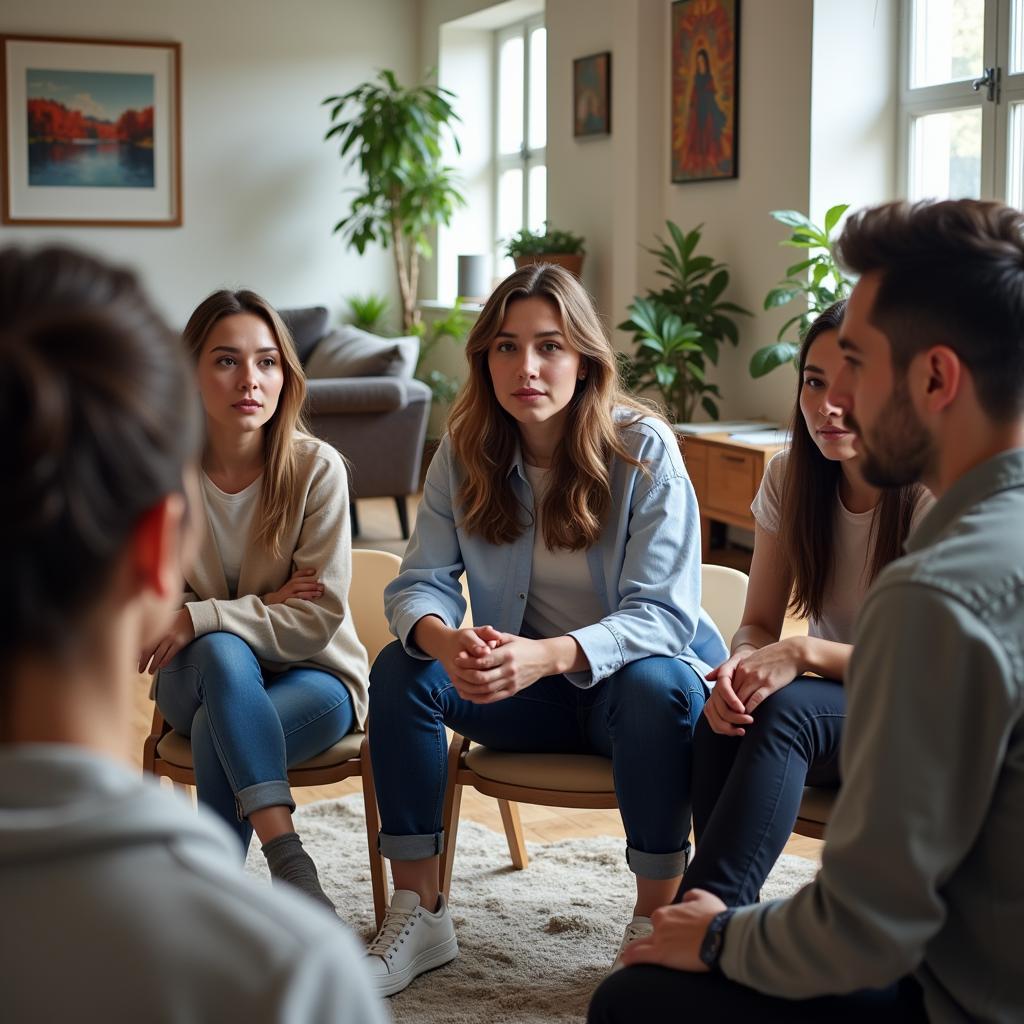Society is a complex tapestry woven from the threads of individual lives, cultural norms, and power structures. It’s within this intricate web that we often find ourselves grappling with the concepts of conflict and order. How do these forces shape our understanding of society?
 Conflict Resolution in Society
Conflict Resolution in Society
The Inevitability of Conflict in Social Dynamics
Conflict, despite often carrying negative connotations, is an inherent part of the human experience and, by extension, society. It arises from the diversity of perspectives, values, and needs within any given population. Whether due to resource scarcity, ideological clashes, or the pursuit of power, conflict is a catalyst for social change. It forces us to confront uncomfortable truths, challenge existing norms, and ultimately, strive for a more equitable and just society.
Consider the fight for civil rights, the labor movement, or even the ongoing struggle for gender equality. These are all examples of how conflict, while disruptive, has been essential in propelling society forward. It compels us to examine our assumptions, engage in critical dialogue, and ultimately, negotiate a new understanding that accommodates a wider range of experiences and perspectives.
Order and Its Role in Societal Functioning
While conflict can be a powerful force for progress, it’s equally important to acknowledge the necessity of order in maintaining a functional society. Order provides the framework within which individuals and communities can coexist peacefully, pursue their goals, and contribute to the collective good. Laws, institutions, and social norms all contribute to establishing order, providing a sense of predictability and security that allows individuals to thrive.
However, it’s crucial to recognize that the relationship between order and justice isn’t always straightforward. History is replete with examples of oppressive regimes that maintained order through force and coercion, suppressing dissent and perpetuating inequality. Therefore, the pursuit of order should never come at the expense of fundamental human rights or the silencing of marginalized voices.
Navigating the Tension: A Delicate Balance
Understanding society requires acknowledging the inherent tension between conflict and order. It’s not about striving for a utopian ideal of perpetual peace, but rather, cultivating a society that can navigate disagreements constructively, channel dissent into positive change, and uphold the dignity of all its members.
 Building Bridges of Understanding in Society
Building Bridges of Understanding in Society
The Power of Dialogue in Bridging Divides
So how do we navigate this complex terrain? One key lies in fostering a culture of dialogue. By creating spaces where individuals from diverse backgrounds can come together, share their experiences, and engage in respectful discourse, we can begin to bridge divides and build understanding. This involves:
- Active listening: Truly hearing and seeking to understand perspectives different from our own.
- Empathy: Cultivating the ability to see the world through the eyes of others, even when we don’t agree.
- Critical thinking: Questioning our own biases and assumptions, and being open to having our views challenged.
Building a More Just and Peaceful Future
Ultimately, understanding society’s relationship with conflict and order is an ongoing process. It requires constant reflection, dialogue, and a willingness to challenge the status quo. By embracing the complexity, engaging in constructive dialogue, and working collaboratively towards a more just and equitable future, we can contribute to building a society where peace is not merely the absence of conflict, but the presence of justice and understanding.
FAQs
1. Is all conflict destructive?
No, conflict can be a catalyst for positive change. It can lead to greater understanding, innovation, and progress.
2. How can we promote peaceful conflict resolution?
Through dialogue, active listening, empathy, and a commitment to finding common ground.
3. What is the role of education in fostering peace?
Education can promote critical thinking, empathy, and understanding of different cultures, all of which contribute to a more peaceful society.
4. How can we address systemic inequalities that contribute to conflict?
By promoting social justice, advocating for equal rights, and challenging discriminatory policies and practices.
5. What is the role of individuals in building a more peaceful world?
Each of us can contribute by practicing empathy, engaging in respectful dialogue, and challenging injustice in our own spheres of influence.
You Can Make a Difference
The journey towards a more peaceful and just society begins with each of us. For more information on how you can get involved, explore the resources available at:
Remember, every step we take towards understanding, empathy, and action brings us closer to a world where conflict is transformed into an opportunity for growth and positive change.
Need support in your journey towards peace and understanding? We’re here to help.
Contact us:
- Phone: 02043854663
- Email: [email protected]
- Address: Khu 34, Bắc Giang, 260000, Việt Nam
Our dedicated team is available 24/7 to provide assistance and guidance.